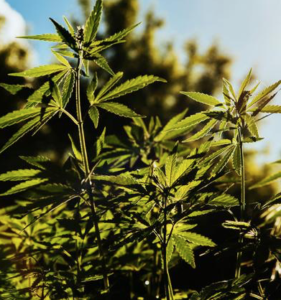ByJohn Haughey
The Center Square
August 1, 2019 – 11:00 a.m.
 Florida’s state-sanctioned industrial hemp program is taking root with the creation of a 20-member hemp advisory committee and completion of three public meetings during which more than 900 attendees expressed interest in participating in a pilot program that some officials say could spawn a $30 billion industry in the Sunshine State.
Florida’s state-sanctioned industrial hemp program is taking root with the creation of a 20-member hemp advisory committee and completion of three public meetings during which more than 900 attendees expressed interest in participating in a pilot program that some officials say could spawn a $30 billion industry in the Sunshine State.
State Agriculture Commissioner Nikki Fried has announced new Hemp Advisory Committee members, who will assist her and state Cannabis Director Holly Bell in creating and implements rules to guide the state’s emerging hemp industry.
“We’re on the verge of a historic opportunity – a chance for farmers to access an alternative crop, consumers to access safe CBD products, and Floridians to participate in this new green economy, while strengthening agriculture and other sectors of Florida’s economy,” Fried said in a statement.
The committee, which will meet monthly, includes biochemical experts, patient advocates, produce farmers, citrus growers, nursery business owners, start-up entrepreneurs, attorneys representing cannabis companies, an agricultural scientist, an agricultural marketer, a law professor, a goat and sheep rancher, a real estate developer and a “hempcrete” house builder.
“The hemp advisory committee’s diverse expertise in agriculture, cannabis, and business and policy development will help us build an inclusive, successful program that makes Florida the gold standard for hemp production,” Fried said. “Our Department is working diligently to draft rules that will work for all stakeholders and will get the new state hemp program growing as soon as possible.”
Hemp’s legal status was clarified with the adoption of last year’s U.S. Farm Bill that essentially legalized the THC-less cannabis plant for broad commercial uses. The bill also allows for interstate commerce for hemp and hemp-derived CBDs, or Cannabidiols.
During the 2019 legislative session, Florida lawmakers adopted Senate Bill 1020, which created the state’s industrial hemp program and placed it under the management of the FDA.
Sponsored by Sen. Rob Bradley, R-Fleming Island, SB 1020 passed the House in a 112-1 vote the Senate in a 39-0 tally.
What differentiates hemp from marijuana in federal and state law is the amount of euphoria-inducing THC in the plant.
SB 1020 replicates federal law in defining “industrial hemp” as cannabis with 0.3 percent or less THC. Plants with more than 0.3 percent of euphoria-inducing THC are defined as marijuana.
Under the system created by SB 1020, farmers must secure a hemp-growing license from the state and can only use seeds that are “certified by a certifying agency,” or by a university participating in the pilot project, as hemp and not marijuana.
Once the plants are harvested, hemp will be processed at sites overseen by the state’s Department of Agriculture and then undergo third-party testing to ensure it is safe for human consumption.
Fried said hemp has as many as 35,000 different uses and its market as a cash crop is only getting brighter as it is considered as a biodegradable replacement for Styrofoam, plastic and paper.
“It’s going to cause an industrial revolution in our state and across the country,” she said in May, forecasting hemp could develop into a $20 billion to $30 billion annual Florida industry.
SB 1020 requires Bell to work with farmers and scientists to help develop rule-making processes, similar to those on medical cannabis, that will address issues like acreage and grower regulations for Florida’s new hemp industry.
